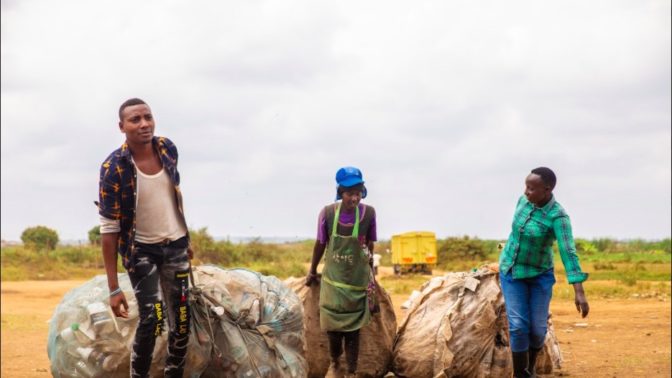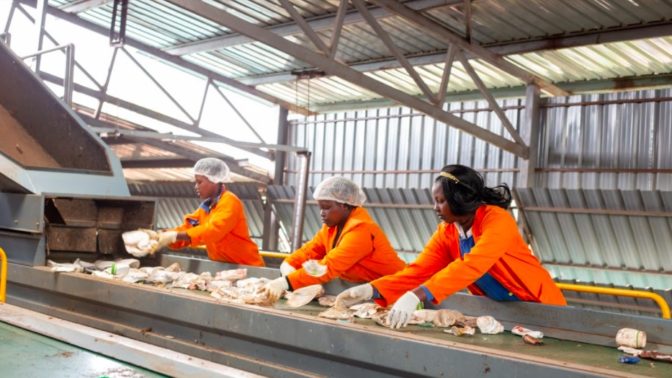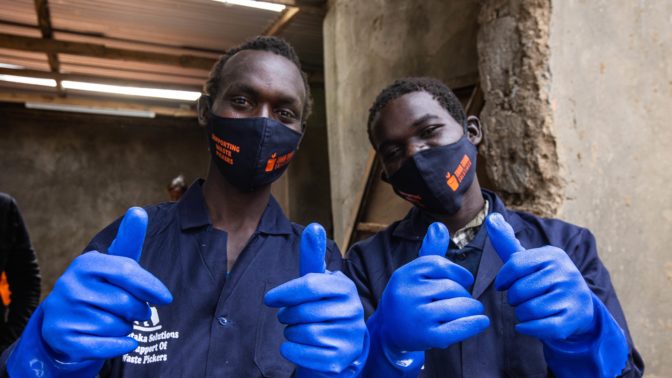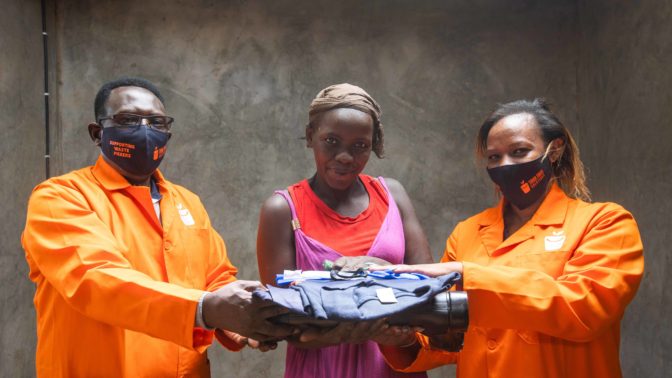Persistent and passionate – the TakaTaka team wastes no time despite COVID-19 challenges
Recently, we caught up with epNetwork member, Daniel Paffenholz, CEO of TakaTaka to hear how he and his team have persevered through the COVID-19 pandemic, how the pandemic has impacted their operations – for better or worse, and how the COVID-19 Resilience Grant from Siemens Stiftung has supported their empowering efforts in these times.

In general, how has your team been able to manage the uncertainties and challenges that have come with the COVID-19 pandemic so far? Both personally and on behalf of the business.
The COVID-19 pandemic has come with its fair share of challenges. Foremost, the pandemic took a toll on the health and safety of employees. We have had instances where employees have had to isolate and this generally has had an impact on productivity. Not only has the pandemic touched on the physical health of employees, but also on their mental well-being.
At TakaTaka, we work with the vulnerable in the society through our waste picker initiative. This group comprises mostly women and children who have to scavenge mountains of waste to get materials that are recyclable. Ever since the pandemic started, the composition of waste has changed significantly with residential and commercial waste consisting of medical waste such as face masks, which are not only cumbersome but also a medical risk to the waste pickers.
As a business, we had several of our big clients shut down and even those who stayed operational, such as malls, were doing so under reduced hours. In turn, their waste volumes reduced significantly which had an impact on our revenues.
Knowing waste management and recycling are both essential services, has TakaTaka Solutions been able to continue operating like it was prior to the pandemic?
With reduced waste from our clientele and reduced revenues, it was not business as usual. We have however been lucky, that we are seeing steady growth again and this has allowed us not to lay off any of our staff. We believed that letting go of employees during a pandemic may just worsen the conditions for vulnerable people we work with.

Could you elaborate on reasons for your steady success throughout this time?
We have a great, dedicated team that is passionate about the environment – it is not just a business, but a cause, that we all wholeheartedly believe in. This has also been backed by quick adaptation by the whole organization to current circumstances, such as changes to internal procedures and approach to the market in general.
What changes have you made in order to remain in operation?
The pandemic forced us to reevaluate and realign our goals and resources. For example, to adapt to the mounting amounts of COVID-19 waste, we scaled up the use of our new incinerator.
Concurrently, we redeployed staff internally and moved them from areas with reduced activity such as collection to others such as sorting and recycling.
To protect our waste pickers we equipped them further with requisite Personal Protective Equipment (PPE).
Finally, we also adjusted our collection times to be in line with the clients’ demands in regards to curfew timings.

Has the importance of efficient waste management and recycling increased due to the COVID-19 pandemic?
In a nutshell, yes!
How has that impacted TakaTaka Solutions specifically? And what new opportunities have you seen?
We have seen an increase in medical waste such as PPE including face masks, gloves, and gowns, not only from hospitals and medical facilities, but also from other residential and commercial premises.
We took this as an opportunity to market our incinerator services and most recently to also have specialized designated bins at Karen Hospital, where we are able to sort medical gowns for recycling purposes.
How has your business adjusted to suit the ongoing situation? How did the Covid-19 Resilience Grant by Siemens Stiftung help you with that?
While waste volumes have gone down during COVID-19, new waste streams have come into existence. These are waste streams relating to reducing the risk of spreading COVID-19 like face masks and protective gowns. We saw this as an opportunity with regards to properly managing and, if possible, recycling these new waste streams.
The COVID-19 Resilience Grant from Siemens Stiftung supported us in expanding our business offerings to users of medical gowns made from different types of plastics (non-woven PP and PE). This could be hospitals, clinics or others who have their staff wearing medical gowns to reduce the risk of COVID-19 infection. Our service included collecting, sorting, disassembling (removing the non-plastic parts) and recycling these items into new plastic granules. In this manner, we have been able to offer a circular economy solution for a product that was previously disposable. This, inherently, helped us in acquiring new customers while also pushing the agenda of moving products away from a linear economy model (produce to dispose) to a circular one (reuse or recycling).

How has the pandemic affected your local community in Kenya?
The pandemic has had a wide ranging effect on the local community, particularly with the number of people who have lost their livelihood. This was compounded by businesses and schools shutting down, due to extended curfews and reduced purchasing power. Students who were not in school, were more prone to teenage pregnancies, crime, drug abuse, and exploitative work practices.
By virtue of working with poor and marginal groups in waste collection, we have witnessed the culmination of impacts lead to an increase in extreme poverty.
However it is not all bad, there are opportunities where employees and waste pickers are more open to wearing PPE, having seen them being embraced by the general public. Even though driven by lack of resources, more people are open to picking waste as a livelihood and the occupation is slowly becoming professionalized by more actors.
Do you expect there to be any long-term changes for your social business because of the pandemic? And how do you see it benefiting your work in the long run?
As it stands, COVID-19 is here to stay and so is the waste associated with PPE, and the only way forward would be to embrace it and find ways we can reduce the footprint left by PPE waste; this may include adapting new materials and engineering new ways to dispose and recycle them.
The pandemic has also caused some of our clients to put more emphasis on their general hygiene and, by extension, insisting on high quality waste management services.
TakaTaka was one recipient of the COVID-19 Resilience Grant offered by Siemens Stiftung to support select social enterprises in their operations throughout the pandemic.